50 H.P. Almgren Drive
Agawam
MA 01001
USA
Phone: 413-789-1770
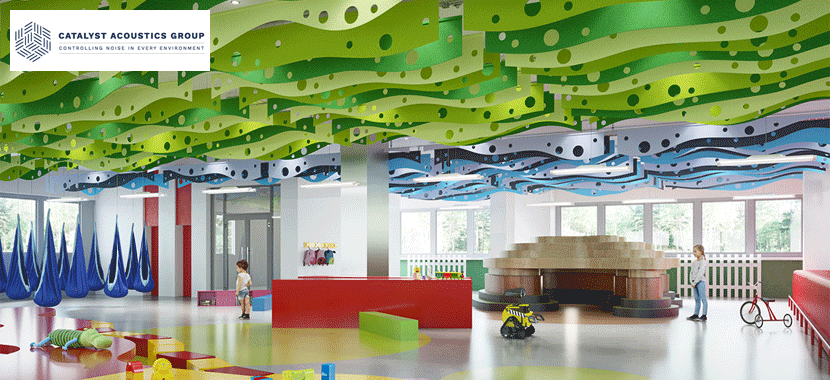
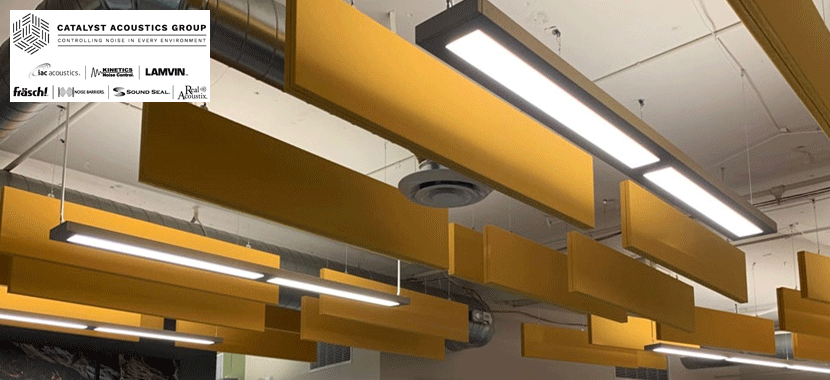
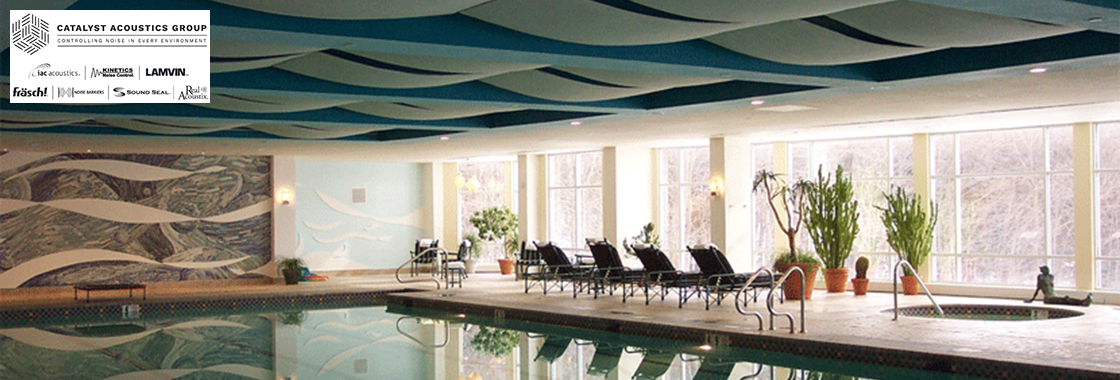

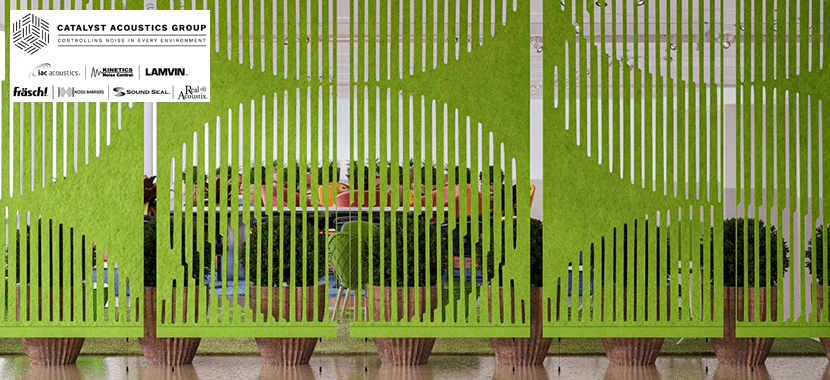
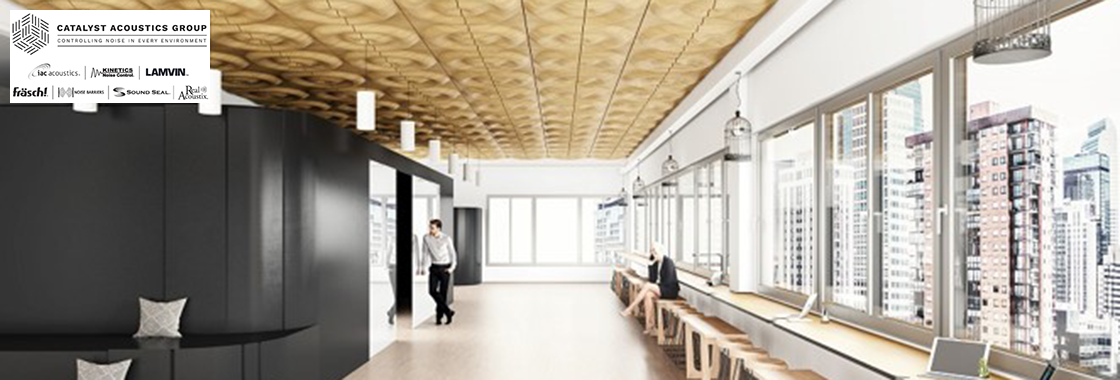
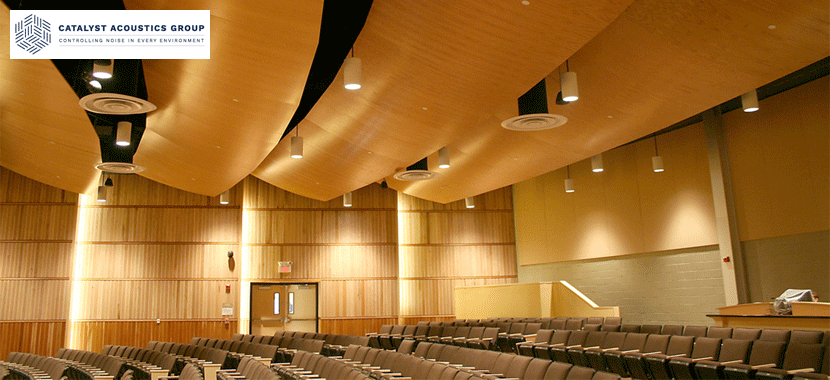
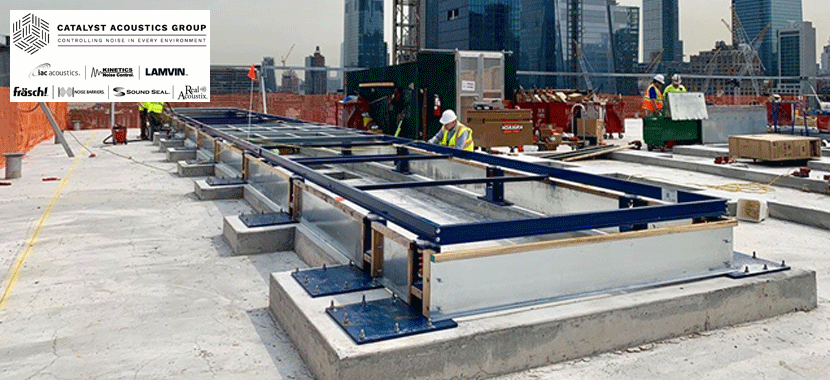
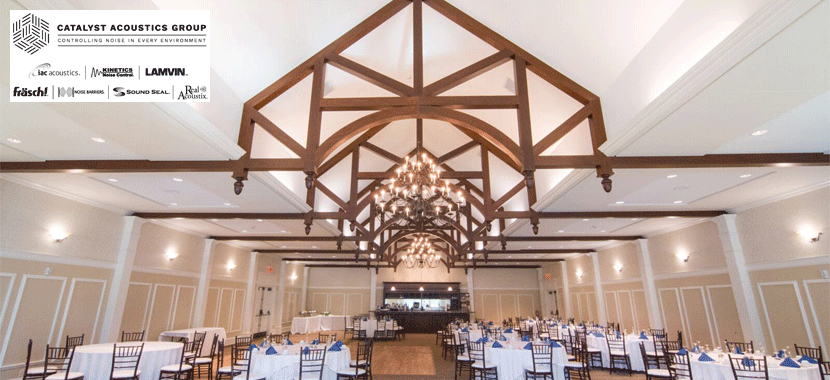
Displaying 11 course(s).
Scan this code with your mobile device camera to take this page on-the-go!

https://redirect.aecdaily.com/s14798/www.aecdaily.com/course/1046426
 In designing successful interior building spaces that positively impact their occupants, it is critical to have knowledge of the principles of acoustics and noise control and link them to design methodology. This course explores these principles, with a special emphasis on common building types where acoustics and noise control are often required and noise can have detrimental effects on users, such as athletic facilities and performance spaces.
In designing successful interior building spaces that positively impact their occupants, it is critical to have knowledge of the principles of acoustics and noise control and link them to design methodology. This course explores these principles, with a special emphasis on common building types where acoustics and noise control are often required and noise can have detrimental effects on users, such as athletic facilities and performance spaces.
Scan this code with your mobile device camera to take this page on-the-go!

https://redirect.aecdaily.com/s14798/www.aecdaily.com/course/952903
 Rapidly changing trends in our society, such as urbanization and a modern lifestyle, have resulted in the isolation of humans from experiences within nature. Research has shown that the psychological effects of biophilic design on noise perception have a significant influence on the well-being and health of humans. In this course, we review the science of sound, identify the potential problems associated with noise, and introduce the range of acoustic solutions formed from polyethylene terephthalate (PET) felt designed to provide sound-dampening benefits for busy commercial, educational, and healthcare facilities.
Rapidly changing trends in our society, such as urbanization and a modern lifestyle, have resulted in the isolation of humans from experiences within nature. Research has shown that the psychological effects of biophilic design on noise perception have a significant influence on the well-being and health of humans. In this course, we review the science of sound, identify the potential problems associated with noise, and introduce the range of acoustic solutions formed from polyethylene terephthalate (PET) felt designed to provide sound-dampening benefits for busy commercial, educational, and healthcare facilities.
Scan this code with your mobile device camera to take this page on-the-go!

https://redirect.aecdaily.com/s14798/www.aecdaily.com/course/1151305
 This course focuses on the rapidly growing data center industry and how critical it is to control noise for facility employees and residents living in neighboring areas and to follow city ordinances. The noise issues data centers pose for their workers and their external surroundings are examined, and practical solutions are reviewed.
This course focuses on the rapidly growing data center industry and how critical it is to control noise for facility employees and residents living in neighboring areas and to follow city ordinances. The noise issues data centers pose for their workers and their external surroundings are examined, and practical solutions are reviewed.
Scan this code with your mobile device camera to take this page on-the-go!

https://redirect.aecdaily.com/s14798/www.aecdaily.com/course/869959
 Unwanted sound can become more than a mere annoyance. Excess noise has been found to increase stress and distraction, reduce learning and productivity, and even lead to hypertension and permanent hearing loss. This course presents an overview of how sound is described and measured and describes the many industrial and architectural products available to control noise in virtually any environment.
Unwanted sound can become more than a mere annoyance. Excess noise has been found to increase stress and distraction, reduce learning and productivity, and even lead to hypertension and permanent hearing loss. This course presents an overview of how sound is described and measured and describes the many industrial and architectural products available to control noise in virtually any environment.
Scan this code with your mobile device camera to take this page on-the-go!

https://redirect.aecdaily.com/s14798/www.aecdaily.com/course/1059306
 When designing noise control measures for a building, it is critical to look beyond the sound transmission class (STC) and impact insulation class (IIC) ratings in order to create an ideal environment that promotes occupant well-being, protects their hearing, and fulfills the project’s needs. This course provides an overview of noise control principles, construction composites, and design methodologies that reduce noise, with an emphasis on performance-oriented designs requiring third-party acoustical consultants.
When designing noise control measures for a building, it is critical to look beyond the sound transmission class (STC) and impact insulation class (IIC) ratings in order to create an ideal environment that promotes occupant well-being, protects their hearing, and fulfills the project’s needs. This course provides an overview of noise control principles, construction composites, and design methodologies that reduce noise, with an emphasis on performance-oriented designs requiring third-party acoustical consultants.
Scan this code with your mobile device camera to take this page on-the-go!

https://redirect.aecdaily.com/s14798/www.aecdaily.com/course/1047615
 Properly selected acoustical solutions are necessary to provide acoustical comfort and performance for a range of applications. This course reviews acoustic theory and design methodology to facilitate the design and specification process. A particular emphasis is placed on performance-oriented designs and strategies for different project types.
Properly selected acoustical solutions are necessary to provide acoustical comfort and performance for a range of applications. This course reviews acoustic theory and design methodology to facilitate the design and specification process. A particular emphasis is placed on performance-oriented designs and strategies for different project types.
Scan this code with your mobile device camera to take this page on-the-go!

https://redirect.aecdaily.com/s14798/www.aecdaily.com/course/879383
 The hospitality industry thrives on positive customer experiences. These experiences are often shared on social media, and reviews of a restaurant or hotel now commonly include the acoustical aspects of the experiences. Hospitality venues must be constructed to the highest standards in order to achieve the necessary level of customer satisfaction; this includes providing a positive acoustic environment for a wide range of situations. In addition to reviewing the basics of sound, sound movement, and sound measurement, this course details the comprehensive range of applications available to the designer to block unwanted noises, control the acoustics in large venues, and provide complete privacy where it is needed while improving the aesthetic appeal of each space as a result.
The hospitality industry thrives on positive customer experiences. These experiences are often shared on social media, and reviews of a restaurant or hotel now commonly include the acoustical aspects of the experiences. Hospitality venues must be constructed to the highest standards in order to achieve the necessary level of customer satisfaction; this includes providing a positive acoustic environment for a wide range of situations. In addition to reviewing the basics of sound, sound movement, and sound measurement, this course details the comprehensive range of applications available to the designer to block unwanted noises, control the acoustics in large venues, and provide complete privacy where it is needed while improving the aesthetic appeal of each space as a result.
Scan this code with your mobile device camera to take this page on-the-go!

https://redirect.aecdaily.com/s14798/www.aecdaily.com/course/1045296
 The operation of mechanical equipment generates vibration and noise, which, if left untreated, can damage the building structure and the equipment itself and be a source of discomfort for building occupants. This course examines HVAC equipment vibration and the specification of isolation solutions. It provides discussions on each of the ASHRAE isolator and base types and describes some acoustical floor treatments.
The operation of mechanical equipment generates vibration and noise, which, if left untreated, can damage the building structure and the equipment itself and be a source of discomfort for building occupants. This course examines HVAC equipment vibration and the specification of isolation solutions. It provides discussions on each of the ASHRAE isolator and base types and describes some acoustical floor treatments.
Scan this code with your mobile device camera to take this page on-the-go!

https://redirect.aecdaily.com/s14798/www.aecdaily.com/course/1056815
 Undesirable acoustics in educational spaces adversely affect the learning and teaching processes. The impact on students’ academic achievement, social adaptation, and mental health can be profound and long lasting. This course examines the impact of different sound problems and presents solutions that create synergy between the architecture and the classroom environment to optimize student learning and engagement and teacher retention.
Undesirable acoustics in educational spaces adversely affect the learning and teaching processes. The impact on students’ academic achievement, social adaptation, and mental health can be profound and long lasting. This course examines the impact of different sound problems and presents solutions that create synergy between the architecture and the classroom environment to optimize student learning and engagement and teacher retention.
Scan this code with your mobile device camera to take this page on-the-go!

https://redirect.aecdaily.com/s14798/www.aecdaily.com/course/965465
 Undesirable acoustics in educational spaces have long been considered averse to our goals to effectively teach, create, collaborate, listen, and learn. Now, in the wake of implementing pandemic protocols, our acoustic comfort in these spaces is greatly challenged. This course examines the impacts of poor soundscapes in educational facilities and introduces innovative solutions for improving acoustics in these areas while keeping us comfortable and safe from exposure to emerging viruses.
Undesirable acoustics in educational spaces have long been considered averse to our goals to effectively teach, create, collaborate, listen, and learn. Now, in the wake of implementing pandemic protocols, our acoustic comfort in these spaces is greatly challenged. This course examines the impacts of poor soundscapes in educational facilities and introduces innovative solutions for improving acoustics in these areas while keeping us comfortable and safe from exposure to emerging viruses.
Scan this code with your mobile device camera to take this page on-the-go!

https://redirect.aecdaily.com/s14798/www.aecdaily.com/course/903272
 Good acoustic and aesthetic environments are important to the health, safety, comfort, satisfaction, productivity, and general well-being of all building users. This course outlines the benefits of and methodologies for simultaneously creating both with wall and ceiling acoustic treatments. The highly illustrated course includes detailed descriptions of the many acoustic wall and ceiling treatment options available, as well as sample installations.
Good acoustic and aesthetic environments are important to the health, safety, comfort, satisfaction, productivity, and general well-being of all building users. This course outlines the benefits of and methodologies for simultaneously creating both with wall and ceiling acoustic treatments. The highly illustrated course includes detailed descriptions of the many acoustic wall and ceiling treatment options available, as well as sample installations.
Displaying 11 course(s).